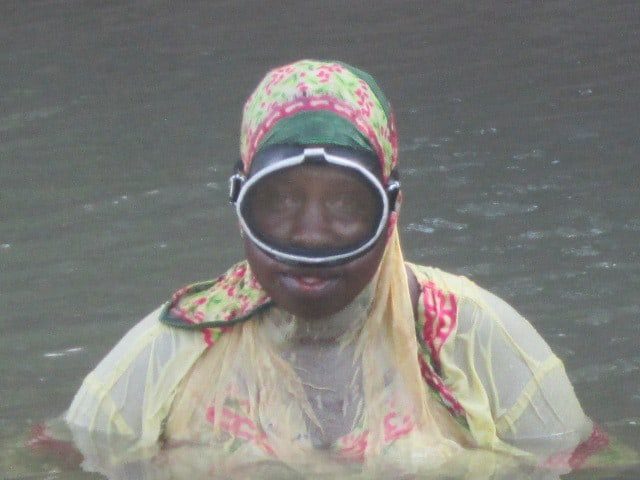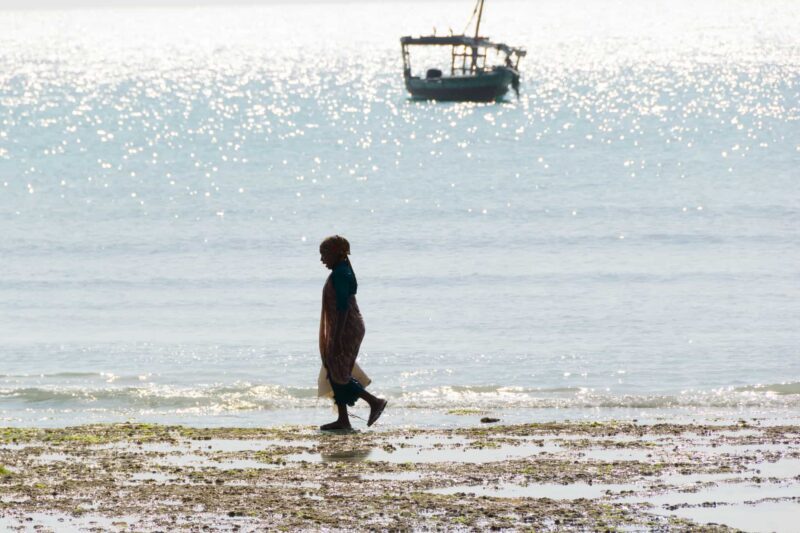When a group of 20 women living in Pemba, Zanzibar started a diving business to provide for their families, people started asking questions. In Zanzibar, women are expected to stay home taking care of their husbands and children. Defying expectations, the divers are proving that women can be entrepreneurs too.
The divers shared their stories with journalists who work for community radio stations and are participating in Internews’ Boresha Habari (Better News) project. Ali Mwadini, Internews media trainer in Zanzibar, supports four community radio stations and guides journalists in story mapping, identifying their audiences, and sharpening their interviewing skills. Journalists also learn the necessary skills to cover gender issues in their reporting, challenging stereotypes and highlighting women as drivers of change. They are trained in in-depth coverage of issues such as gender-based violence, early marriage, and family abandonment.
Zuwena Iddi Ali, the Chairperson of the women’s diving cooperative, was invited by Mwadini to tell her story at a training for community radio journalists. Married with six children, Ali goes to fishing camps and deep diving every month for eight to ten days and earns up to $40 from selling her catch. Her income helped pay for a new roof for her house and a sewing machine for her daughter.

The women’s husbands when interviewed said that while they were initially concerned about their wives’ new endeavors, they soon saw the positive impact the activity had on their families. Additionally, the community’s Imam explained from a religious perspective that women can take part in business, pointing out that the prophet Mohamed’s wife was an entrepreneur.
Following the training, Haji Nassor Mohammed, a journalist working with Zanzibar Leo Newspaper, wrote a story on the divers, which was published in September. The story drew mixed reaction from community members, which roughly fell into two groups.
Some people felt that husbands in Pemba were falling short in fulfilling their families’ daily needs thus forcing women like Zuwena to engage in work that was previously a taboo for women. This group wanted journalists to write stories that would encourage husbands to take more responsibility to provide for their families.
Others praised Zuwena as a courageous woman who was proving that being a woman is not a barrier to engaging in economic activities. They see Zuwena as a role model to the change that Pemba needs. Some members of a WhatsApp group for journalists from Zanzibar praised the journalists telling the story of the divers as good for women’s empowerment, and that Zuwena’s activities would encourage other women.
Mwadini stresses that it’s important to train journalists to report stories that go against societal norms in order to challenge how people think about issues, particularly when it comes to women’s roles and their treatment.
Internews’ project in Tanzania, Boresha Habari, is funded by USAID, and implemented in partnership with FHI 360. It seeks to support an open, inclusive environment in which media and civil society provide accurate and impartial information that promotes participation, inclusion, and accountability. A core focus of this activity is the engagement and empowerment of women and youth in order to elevate their voices, influence, and issues in the public sphere as both producers and consumers of information.
(Banner image: A woman walks on the beach in Zanzibar. Credit Paolo Lucciola/CC)
